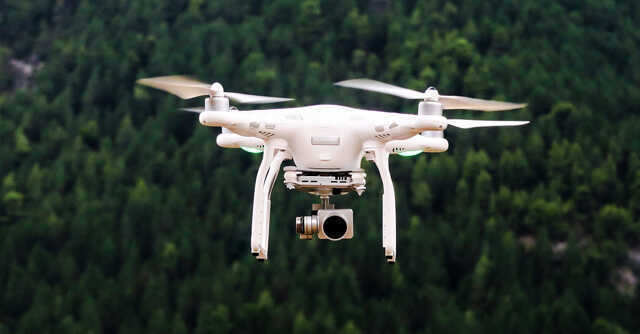
Indian drone cos seek simple rules, govt aid to widen operations in 2022


Drone companies in India that have signed new pacts to roll out large scale commercial, business-to-business (B2B) drone operations in 2022, are urging the government to simplify policies and provide better support that would help them scale up manufacturing and leverage the production-linked incentive (PLI) scheme.
The PLI scheme for the Indian drone industry was announced in September, allocating Rs 120 crore over three years for drone manufacturers, component makers and software companies. It offers a 20 per cent bonus on value generated by each company in the drone space.
Read more: Govt announces PLI-scheme for local manufacture of drone, components

Drone manufacturers will need to attain annual revenue of Rs 2 crore, while component makers have a target of Rs 50 lakh per year to match.
Some startups believe they can meet the target. “We have struck a number of commercial partnerships to scale up operations in 2022. This will help us strike the Rs 2 crore annual revenue target next year, after which we plan to apply for the government’s PLI benefits,” said Vikram Singh Meena, founder and chief executive of TechEagle, an Indian drone manufacturing and service startup.
TechEagle has so far been involved in pilot projects with the Telangana and Meghalaya governments, and in 2019, was reportedly acquired by food delivery company, Zomato.

The startup has so far raised $500,000 in seed-round funding and has recently struck a deal with a pharmaceutical logistics firm, Jeena Criticare. The startup is planning to set up a new manufacturing plant in 2022 to meet the growing demand for drones.
Read more: Drone maker TechEagle bullish on India's push for commercial drone delivery
Vipul Joshi, co-founder and vice president of IdeaForge, a Mumbai-based drone manufacturing startup, is happy with the pace at which the drone sector has been liberalised. “The PLI scheme is an enabler to bring in component manufacturing, before local consumption of drones booms. Any investment has to see a business outcome, which the PLI scheme is easing. It has been set down for three years, and is likely to be revised sometime in the near future,” said Joshi.

Read more: Drone maker ideaForge raises $2 mn from BlackSoil
According to Smit Shah, director of the Drone Federation of India (DFI), the PLI move by the government was meant primarily as a sign of support to boost a very early-stage industry. “When the drone PLI was announced, the estimated industry revenue as per the government was about Rs 50 crore. For such a small market, offering a PLI is itself a bold move. Rather than being a highly-calculated decision, this is more of bullish industry support from the government,” he added.
That said, while the initial boost to the drone ecosystem is expected to come as Indian startups push for the incentives, there’s more to be done.

Mughilan Thiru Ramasamy, co-founder and CEO of drone software platform startup Skylark Drones, points out, “On the supply end, the PLI scheme is a good thing for local and small drone manufacturers to start building. Opening the parts ecosystem and reducing compliance laws even further can potentially help local drone makers compete and build better drones in India.”
“We still need to set up a working group for drone software for Digital Sky, and simplify the certification of drones -- before the market can really take off,” he adds.
Skylark Drones is working on building a unified software platform based on which drones, both in India and across the world, can work. The startup raised $3 million in July 2021 from InfoEdge Ventures, IAN Fund and a host of other investors.

DFI’s Shah believes that the targets set by the government will largely facilitate players with already existing drones in the market. “The PLI scheme is to boost and scale-up manufacturing, rather than bring new players to drone manufacturing in India. It will help differentiate between companies that are still experimenting, and are at a concept stage,” he added.
Ramasamy believes that while a lot of policy framework is yet to be established, the next year may answer a lot of questions. “All of this (policy refinement) will happen by 2022 because the Indian government is actively interested in this sector right now. We are already building the software platform based on the standards that the government is recommending. However, these standards are still evolving, and the committee to set up these standards is yet to be established.”
